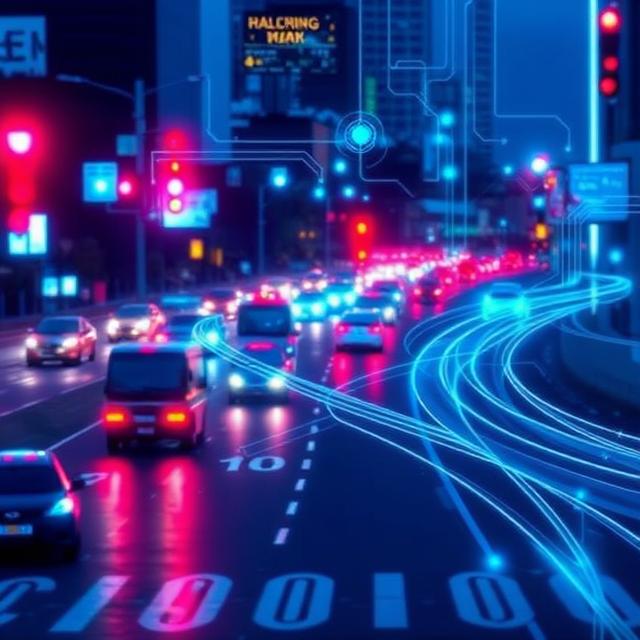The Impact of AI on Traffic Management System Projects and Coordinators

Artificial Intelligence (AI) is transforming the way cities manage congestion, road safety, and traffic management. There may be no industry in which this transformation is so apparent as in traffic management system projects, where software based on AI is streamlining tasks and making them easier. Not only is AI speeding up real-time traffic decision-making but also transforming traffic management coordinators everyday work. As more smarter technologies take the lead in city mobility strategies, the integration of AI has moved from optional to essential.
AI Optimizing Traffic Flow in Urban Projects
The greatest that AI can do for traffic management system projects is optimize them. AI sensors, cameras, and forecasting software can sort through eye-watering amounts of information at mind-boggling speeds, far greater than humans could ever possibly achieve. The systems scan real-time traffic flow and respond by changing signals or suggesting side streets in real time, meaning that distribution is improved. Projects that earlier used human observation now make use of high-precision AI predictions, decreasing delay and traveling time.
For example, machine learning-based adaptive signal control technology in the majority of cities has reduced traffic congestion by as much as 20%. Such technologies are particularly handy for peak hour and emergency situations, where manual adjustment may not be adequate. AI turns projects of traffic management systems more proactive than reactive, making them perform better over an extended period.
Enhancing Safety with Predictive Analytics
Safety in all situations is a critical factor in every urban mobility plan. AI plays a key role in the prevention of accidents by recognizing danger zones and approximating incoming collisions in anticipation in advance. Based on comparison of history records for previous accidents, weather, and traffic, AI will recognize danger zones and suggest infrastructure realignment or redesigning of the policy on enforcement.
For traffic management coordinators, this change involves abandoning routine clerical work in favor of more supervisory tasks with an analytical flavor. They are now required to interpret reports made by AI systems, manage alert systems, and update emergency services in real-time. This new set of responsibilities enhances their function in public safety at the expense of greater technical expertise.
Role Transformation for Coordinators
As artificial intelligence increasingly becomes woven into everyday traffic control, traffic management coordinators are undergoing a transformation. The job of sitting in front of monitoring cameras or manually setting signal times is increasingly the province of machines. Coordinators are being reallocated to help AI systems, dashboards, and train AI tools in ways that ultimately benefit the greater civic good.
Apart from this, the specialists are now also included in project planning and project management. The traffic administration coordinators for the majority of cities currently make suggestions regarding the choice of AI platforms, data collection methods, and performance measurement for emerging systems. They are more strategic in their design, entailing the involvement of IT teams, engineers, and policymakers.

The Impact of AI on Traffic Management System Projects and Coordinators
Challenges in AI Integration
While it has numerous advantages, AI implementation in traffic management system projects is not without some challenges. Some of the technical concerns posing difficulty to deployment include data privacy, transparency of algorithms, and maintenance of the system. Additionally, not all cities are blessed with resources or infrastructure to enable AI-dependent platforms, which means that there will be inequality in traffic efficiency and safety rate between urban and rural setups.
Training. Training is also a key element. As such technologies continue to develop, traffic administration coordinator’s will need to be further trained in AI ethics, data interpretation, and diagnostics. If no investment is made in human resources and training prepares them, the full potential of AI-based traffic systems cannot be realized.
Looking Ahead: Smart Cities on the Rise
The future of traffic management lies in smart city projects, and artificial intelligence is the ideal turning point. Implementations in traffic management system projects are among the first to be modernized under such frameworks. Governments everywhere are observing the long-term advantages of AI: fewer emissions, fewer crashes, and better homes to live in. But this dream would be possible only through active engagement and upskilling of traffic management coordinators who will act as the interface between automatic systems and public needs.
In summary, AI is not just a tool, it is a change agent revolutionizing traffic detection systems with edge processing capabilities. Where traffic management system initiatives and coordinators for the traffic management are headed more modern, the balance between human touch and artificial intelligence will be incredibly strong in making smarter, safer cities.
AI is transforming traffic management system projects and redefining the role of traffic management coordinators through smart, data-based solutions.
How Photonic Glucose Sensors are Transforming Monitoring Devices
How AI Optimizes EV Tuned Tires Battery Life and Supply Equipment
